- Where will I cruise 90% of the time with this boat? To determine: draft, hull composition, sail/power, tankage, instruments
- Will I routinely be obliged to cruise at night, in inclement weather, or limited visibility? To determine hull composition, instruments, emergency equipment
- How often will I line fish or troll? To determine decks, transom, fishing equipment, instruments
- How often will I swim or scuba-dive? To determine swim platform, layout, engine options, ground tackle
- How many people will accompany me 90% of the time? To determine LOA, staterooms, heads
- Will my guests be close family or friends?To determine cabin layout
- Will I routinely be cooking aboard or generally be dining out? To determine layout, galley equipment
- How far will I have to go without refueling on 90% of my outings? To determine tankage, engines, propellers
- How fast MUST I go to have enough time to enjoy myself on 90% of my excursions? To determine hull, engines, propellers
- What is the maximum amount of money I want to spend each year for fuel, repairs and maintenance, insurance, and dockage? To determine make, model, LOA, age
- How many years do I plan to own this boat and how much depreciation am I willing to incur each year that I own this boat? To determine purchase price, age of vessel, hull composition
- Do I plan to anchor out often or will I generally overnight in marinas? To determine ground tackle, shore power options, gensets, tender
- Will I ever be obliged to dock the boat on my own? To determine size, access to decks from helm, visibility from helm, steering equipment options
- What is the clearance of any fixed bridges that I will have to routinely pass under To determine height of mast/flybridge
- What is the controlling depth of 90% of my habitual cruising grounds? To determine draft
- What are the variances in ambient air and water temperatures that I will encounter in 90% of my cruising? To determine hull composition, hull insulation, heating, AC, emergency equipment
Choosing a Boat
There are two reasons why boaters buy the wrong boat. The first reason is that they haven’t actually determined what they plan to do with their boat and based their purchase decision on those plans. The second reason is that emotions instead of reason get involved in the buying decision and sales people are well trained and not bashful about selling to emotions that have been aroused.
Take the time to ask yourself the following questions to help you define the type boat and equipment that will meet your needs.

